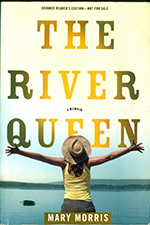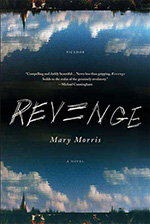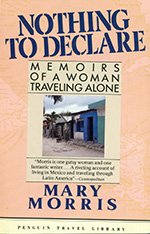The other evening my husband, Larry, and I were wandering around the Kumkapi district of Istanbul. It is a lively neighborhood of fish restaurants, fasil traditional musicians, and social clubs. We stopped in a pub for a beer and, as usual, I was the only woman. In Goreme in Central Cappadoccia I noticed this as well. I never saw a Turkish woman in one cafe or in a social club. The women were home with the children, the house. Never out in the world.
After a drink we wandered into a very good seafood restaurant where we opted for calamari from the Aegean, small blue fish from the Bosphorus, and a nice white wine from the Ankara region. As we settled into our wine, I noticed that, once again, I was the only woman. The wine had just been poured when I saw a handsome man come in. He was probably in his mid sixties with a shock of white hair, a white mustache, and glimmering teeth. He was tanned and clearly enjoyed making the scene. As he shook hands with all the men around, he made me think about someone I hadn't given much thought to in over thirty years.
Many years ago as a graduate student at Columbia I lived at International House and also living there was an extremely handsome Turkish graduate student named, for purposes of this post, Mahmoud. Mahmoud had thick black hair, a black mustache, a beautiful carved face, and a lovely, sensitive manner. I would be lying if I said I didn't like him because I did. And I think he liked me. But we were world.s apart. I recall that old Jewish proverb. A fish can love a bird but where would they make a nest.
At International House Mahmoud had met a woman named. again for my purposes here, Leila. Leila was the daughter of a former diplomat. She had been raised in Washington and her family was extremely well connected. Leila was also a student of politics, as Mahmoud was, and they used to sit together in the living room at I House, arguing history, politics, women s rights, and so on. I envied them the passion of their discussions and after a while it became clear to me that they were in love. Or at least that they had formed a deep connection. Everyone assumed that they would marry and be happy and be the gorgeous, politically connected, smart couple that anyone at a cocktail party would envy. It was also at times suggested that Mahmoud was not doing a bad thing for his own career in Turkish politics by marrying a diplomat;s daughter.
Personally I found Leila, though beautiful and cultured, rather scary. Anyway they got engaged and moved into an apartment. I left graduate school to write and, for a number of years, I didn't see Mahmoud. Then one day walking down Broadway we ran into one another. It was five or six years later and he was clearly glad to see me. We chatted. He and Leila had stayed in New York to finish their graduate work and they now had a little daughter. He showed me her picture, then asked if I'd like to have dinner with him a few nights later.
I said I would and we met. I didn't really ask myself how Mahmoud had left the home that evening or if he'd told Leila that he was meeting me. I doubted at any rate that she would remember me. She was a rather haughty woman, artistocratic in her bearing, and I always felt somewhat beneath her. At any rate Mahmoud and I met for dinner. We had a lovely time and he walked me home. I invited him in for a drink and we talked for several more hours, and, as the night wore on, I wondered when or even if he would go home.
At last he opened up to me. His marriage was a disaster. He couldn't stand Leila. She didn't understand him and he was completely miserable. If it weren't for their daughter, he would have left years ago. I was stunned, but not entirely surprised. Again I would be lying if I didn't say that a part of me was very very drawn to this man. When he finished his confession, he just stared straight ahead. Then said he had to go. He got up and went to the door. He told me he'd always liked me. That he wished he'd met a woman like me. He kissed me on the cheek, squeezed my hand, and walked down the stairs. And I never saw him again.
I have from time to time wondered about that strange night and how you can't really imagine what another person's life is unless they tell you. And that night as I sat with my husband of over twenty years, to whom I am happily married and with whom I love to travel, I watched the white haired man. There was something sad about him. Something sad it seemed to me about many of the men in the bustling restaurant where I remained the only woman.
The man with the white hair reminded me of Mahmoud. He made me think that this must be how Mahmoud looks all these years later. I wondered where Mahmoud was and if he too wasn't sitting somewhere in a bar or club with his cronies, swapping stories about the way things were while his wife, whoever she may be now, waits for him at home.

















